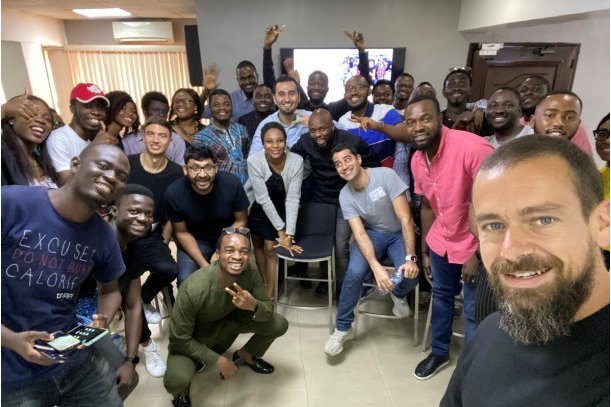Latest News
Blackouts hampering Nigeria’s tech sector – new report

News Highlight
‘Nigeria’s 21st century economy is being held back by a very 20th century problem: lack of power.’
Lack of power supply constitutes a major challenge for Nigeria’s growing information and communications technology (ICT) sector, according to a new survey report released today by the Center for Global Development (CGD) and One Campaign. CGD is a Washington DC-based independent research institution, and ONE Campaign is a global movement campaigning to end extreme poverty.
In "The New Economy of Africa: Opportunities for Nigeria’s Emerging Technology Sector," which was released to Financial Nigeria ahead of its launching, frequent power outages are a major constraint to the business environment and they significantly reduce the revenue of tech firms in Nigeria.
“Basically, Nigeria’s 21st century economy is being held back by a very 20th century problem: lack of power,” said Vijaya Ramachandran, one of the authors of the report and a senior fellow at the Center for Global Development.
Among the key findings of the survey, 57 per cent of the 93 technology firms surveyed by ONE Campaign and CGD in the fall of 2018 said reliable access to power was a “major” or “severe” obstacle to their business. The firms, mostly in Lagos and Abuja, were surveyed by the two organizations to better understand the challenges and opportunities in the Nigerian tech sector.
53 per cent of the tech firms said they faced over 30 blackouts each month, while another 22 per cent reported more than 20 blackouts per month.
For most firms, a typical power outage lasted 2-3 hours. About 15 per cent of the firms said the lights usually stay off for five or more hours at a time. The ONE-CGD survey also shows a third of firms surveyed reported losing more than 20 per cent of their sales due to power supply problems.
“Everyone is talking about 5G access or startup accelerators, but we found Nigeria’s tech industry is struggling with much more basic problems, like unreliable electricity,” said Ramachandran. “The firms we talked to are dealing with dozens of power outages per month. That’s hard for any business, and especially for a technology company.”
CGD and ONE Campaign said the tech sector, apart from being a fairly niche industry, provides important linkages to the rest of the economy. Therefore, without the sector, Nigeria and other African economies will find it much harder to achieve their digital economy aspiration.
Investment in the tech sector has also been growing. In fact, Nigeria emerged as the premier investment destination in Africa in 2018, with 55 startups in the country raising a total of $94.9 million, according the report. South Africa’s tech sector came second, recording about $60 million in investment in the same period.
Citing figures by OC&C Strategy Consultants, a management consulting company, the ONE-CGD report says Nigeria’s ICT sector accounts for almost 10 per cent of GDP as of 2018. The country is also Africa’s biggest technology market, accounting for 23 per cent of internet users on the continent with 122 million people online as of December 2018, according to Internet World Stats.
Apart from unreliable power supply, other major constraints hampering Nigeria’s tech firms, according to the survey, are lack of access to finance, political instability, and corruption.
The ONE-CGD report says Nigeria has a vibrant and growing tech sector and the country's tech companies are addressing inefficiencies in distribution of goods and services. To underscore the growing interest in Nigeria's tech sector, Twitter's CEO, Jack Dorsey, visited Nigeria last week, promising to invest in Nigerian tech start-ups. His visit followed the one by Facebook's CEO, Mark Zuckerberg, in 2016.
According to the new report, Nigeria can achieve about 30 per cent increase in available power generation if the gas constraints are resolved.
The report also recommends a crackdown on electricity theft and reduction in losses due to corruption. It also says Discos, particularly, would need to improve their own networks to take up all the increased power generation.
"Big private investments and government-sponsored tech hubs can be helpful, but Nigeria needs to get the basic business environment right first. That means providing the energy infrastructure all businesses need to flourish,” the CGD senior fellow added.
Related News
Latest Blogs
- The Museum of West African Art saga
- The complexity and complication of Nigeria’s insecurity
- Between bold is wise and wise is bold
- Prospects of port community system in Nigeria’s maritime sector
- Constitutionalism must anchor discipline in Nigerian Armed Forces
Most Popular News
- NDIC pledges support towards financial system stability
- Artificial intelligence can help to reduce youth unemployment in Africa – ...
- Afreximbank backs Elumelu’s Heirs Energies with $750-million facility
- Nigeria’s December PMI hits 57.6 points as economic activities strengthen
- Lagride secures $100 million facility from UBA
- GlobalData identifies major market trends for 2026




